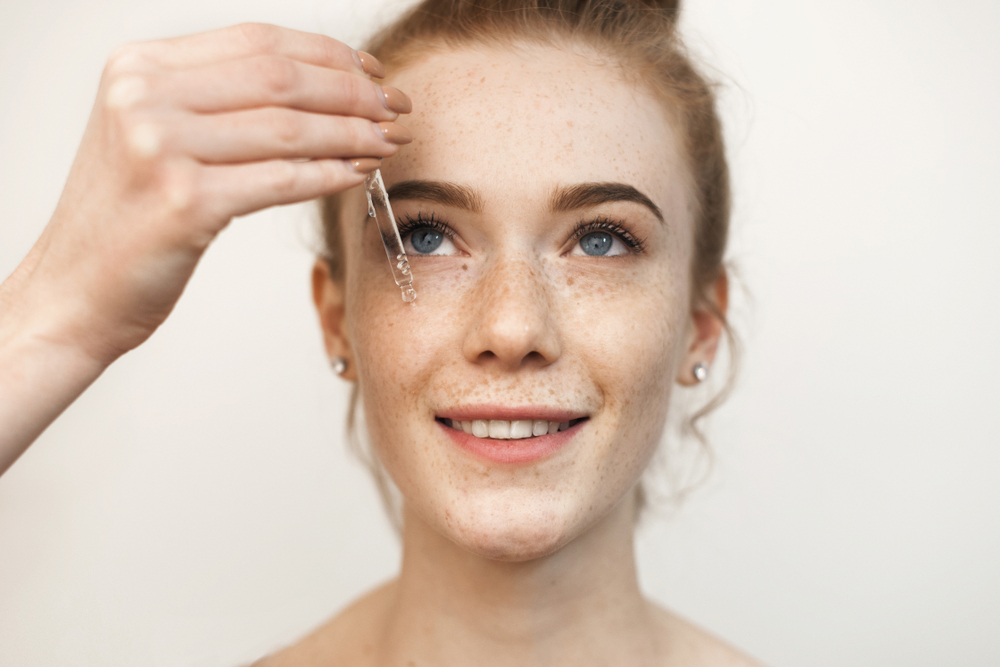Best Solution for Skin Problems with vitamin C serum?


Skin problems
Vitamin C serums are frequently mentioned in the cosmetics world as best solution for skin problems, but what exactly are they? Vitamin C is one of the most popular products in the cosmetics industry due to its powerful anti-aging properties and ability to keep skin smooth and glowing.
It is absorbed by our body through food, but it does not always reach our face and does not have the expected results! That’s why vitamin C serums were created: they are the fastest and most effective way to get vitamin C to work on your face and skin.
In this article, we’ll go over all the benefits of vitamin C serum, why you should include them in your daily routine, and how to get the most out of them. We want to emphasize that there are no universal principles that apply to everyone; Everyone’s skin is different and requires different care, so we strongly advise you to experiment with different products until you find what works best for you.
Vitamin C serums offer abundance of benefits
Let’s take a look at the most essential benefits of vitamin C for our skin and examine the most crucial ones in more depth.
1. It is suitable for all skin types
Vitamin C has an incredibly high tolerance profile. Most people can safely apply vitamin C to their skin for long periods of time without experiencing negative side effects. Mild irritation may occur in some people, especially those with sensitive skin, but it usually goes away on its own within a few days.
Vitamin C can also be mixed with other skin treatments, including glycolic acid, salicylic acid, retinol, and sunscreens, without their benefits being affected.


2. It brightens the skin
Vitamin C helps reduce hyperpigmentation and improve skin texture, giving the face a more even and luminous look. Vitamin C has the ability to inhibit the synthesis of melanin, the pigment that gives skin its color. Therefore, it is effective in removing skin spots.
3. It helps reduce redness
Vitamin C contains anti-inflammatory and antioxidant properties, which means it can decrease redness and swelling while helping the skin return to its natural state. How important is this feature? Because the anti-inflammatory properties of vitamin C can be very beneficial in such situations:
- Free radicals produced as a result of oxidative damage must be neutralized.
- In the inflammatory response, optimizing the immune system.
- Redness, skin blemishes and irritation are reduced resulting in smooth, healthy and beautiful skin.
4. It helps reduce hyperpigmentation
Vitamin C is useful against hyperpigmentation because it inhibits melanin synthesis. Overproduction of melanin in specific and limited areas, such as acne, scars, sunburns and melasmas, is known as hyperpigmentation. What is the mechanism by which vitamin C reduces hyperpigmentation? Because it inhibits the enzyme Tyrosinase, which controls melanin formation.


5. Helps reduce puffiness and dark circles around the eyes
Vitamin C serums are great for hydrating, toning, and plumping the eye area. According to a study, after 6 months of use, vitamin C in the form of sodium ascorbate at a concentration of 10% was found to be beneficial in eliminating dark circles. In fact, due to blood congestion under the eyes, this vitamin thickens the epidermis and eliminates purple and bluish discolorations.
6. It promotes collagen formation
Collagen is a natural protein that breaks down over time, leading to the appearance of wrinkles and expression lines. Vitamin C is beneficial for the formation of collagen because it directly affects the synthesis of this protein: collagen cannot be generated without vitamin C!
7. It contributes to the toning of the skin
Collagen is linked to the elasticity and firmness of the skin; when collagen levels decrease, the skin begins to sag, lose its tone and wrinkles appear.
Collagen synthesis can be stimulated by the daily use of vitamin C serums. The result is a firmer and more toned face. Therefore, you can avoid:
- Oxidative stress
- Skin aging
- Weight fluctuations have an impact on the elasticity of the skin.
8. It protects you from the harmful rays of the sun
Excessive exposure to pollution and UV rays from the sun leads to oxidative stress which causes vitamin C levels to drop. Free radicals, which are tiny atoms that are missing an electron, are responsible for the damage caused by the sun.
These molecules seek out other atoms from which they can receive electrons, but in the process they change the structure of other molecules in our body. This is the mechanism by which sun damage to the skin occurs.
Antioxidants are small molecules that can transfer an electron to free radicals, rendering them harmless. Vitamin C is rich in antioxidants. This is how vitamin C protects the skin from oxidative damage produced by the sun.
9. Helps relieve sunburn
Vitamin C increases the healing process of cells and stimulates cell renewal, in addition to reducing redness. Sunburn and inflammation caused by the sun’s UV rays can be reduced by applying vitamin C to the skin, ideally in combination with vitamin E. This stimulates tissue repair and the production of new skin cells.
10. Helps wound healing
Vitamin C, in addition to its anti-burn properties, is also excellent for promoting wound healing. Tissue healing is essential as it prevents the development of inflammation, infection and scarring.
Vitamin C has the ability to improve the expression of the fibroblast gene, which allows it to:
- Improve cell proliferation.
- Increase cell mobility.
- Increase the efficiency of DNA nitrogen base repair.
Moreover, these activities require the existence of collagen, and as we have seen, vitamin C is essential for the formation of collagen. read more for the top vitamin c serums available in pakistan.


